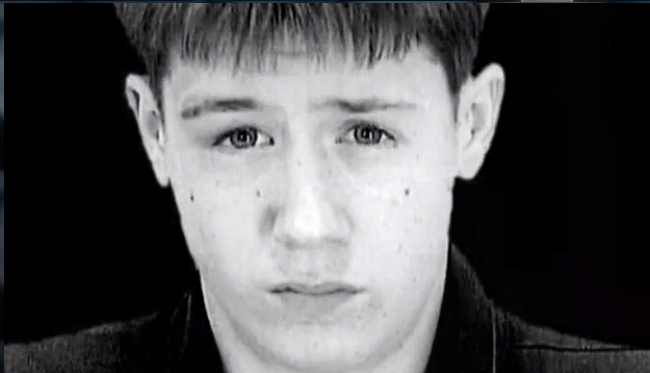In 1998 a 15-year-old Oregon boy named Kipland “Kip” Kinkel shot and killed his parents, then brought his guns to school, where he killed two people and wounded 25 more before he was disarmed. Oregon does not generally give mandatory life sentences without parole, but Judge Jack Mattison came as close as he could, sentencing Kinkel to 111 years and eight months in prison without parole, effectively ensuring that the spree killer would die behind bars. Now, in the wake of a recent Supreme Court decision that found mandatory life sentences for minors to be unconstitutional, Kinkel’s lawyers have asked for a new sentencing hearing. The gambit is unlikely to succeed, but the issues it raises merit some attention.
American criminal courts have never been quite sure how to handle underage defendants. While nonviolent crimes are usually tried in juvenile courts, serious cases, like those involving murder and rape, are often tried in full-fledged criminal courts. In those courtrooms, the kid gloves come off, and child defendants have received adult punishments when convicted: life in prison, or even death.
But children aren’t adults. Academic research has confirmed what common sense tells us. Teenagers are prone to recklessness and irresponsibility. They’re extraordinarily susceptible to peer pressure. Their brains are not yet fully developed. They should not be held to the same standards of culpability as a full-grown adult.
Gradually, the Supreme Court has acknowledged this line of thinking. In 2005’s Roper v. Simmons, the court declared it unconstitutional to give a death sentence to a defendant who committed his crimes while underage. (In his majority opinion, Justice Anthony Kennedy drew lengthy parallels between underage offenders and developmentally disabled offenders.) In last year’s Miller v. Alabama, the court decided that mandatory life sentences with no possibility of parole are also unconstitutional.
I think these rulings make a lot of sense. I also don’t think they’ll help Kip Kinkel. The Miller v. Alabama decision did not do away with all life sentences for juvenile offenders, only those life sentences imposed by mandatory-minimum statutes. Though Kinkel’s 112-year bid is tantamount to a life sentence, it isn’t technically a life sentence, and it certainly isn’t the result of mandatory-minimum legislation. So the sentence will probably stand. But should it?
The rationale behind stiff sentences is threefold: to punish the defendant, to satisfy the victims and the community, and to deter future offenders. Judging from the number of school shootings we’ve seen since 1999, when he was sentenced, Kinkel’s sentence hasn’t served as much of a deterrent—nor should we have expected it to. You can’t really expect the threat of punishment to deter young offenders whose brains are inclined to recklessness and short-term thinking. I am sympathetic to the idea of making victims and communities whole, but only to a point; the line between vengeance and justice is thin. And, as for punishing the defendant, our legal system theoretically refrains from acting too harshly against defendants who weren’t in their right minds at the time of the crime. No matter how articulate or mature they might seem, teenagers’ minds haven’t fully developed yet. Take a look at this extended excerpt from Kip Kinkel’s journal for a glimpse into his mindset around the time of the shootings:
I know everyone thinks this way sometimes, but I am so full of rage that I feel I could snap at any moment. I think about it everyday. Blowing the school up or just taking the easy way out, and walk into a pep assembly with guns. In either case, people that are breathing will stop breathing. That is how I will repay all you mother fuckers for all you put me through.
I feel like everyone is against me, but no one ever makes fun of me, mainly because they think I am a psycho. There is one kid above all others that I want to kill. I want nothing more than to put a hole in his head. The one reason I don’t: Hope. That tomorrow will be better. As soon as my hope is gone, people die. …
I need help. There is one person that could help, but she won’t. I need to find someone else. I think I love her, but she could never love me. I don’t know why I try.
Oh fuck. I sound so pitiful. People would laugh at this if they read it. I hate being laughed at. But they won’t laugh after they’re scraping parts of their parents, sisters, brothers, and friends from the wall of my hate.
Please. Someone, help me. All I want is something small. Nothing big. I just want to be happy.
I have no interest in engendering sympathy for Kinkel, or in downplaying the gravity of his crimes. The kid took four lives, and irrevocably altered the courses of countless others. But these are not the words of a rational adult who knows how to control and understand his impulses and emotions.
Kip Kinkel deserves to be punished for what he’s done. But 112 years in prison is too long. The punishment must fit the crime, yes, but it also must fit the criminal, and extreme sentences are inappropriate for the youngest of defendants.
Crime is Slate’s crime blog. Like us on Facebook, and follow us on Twitter @slatecrime.
